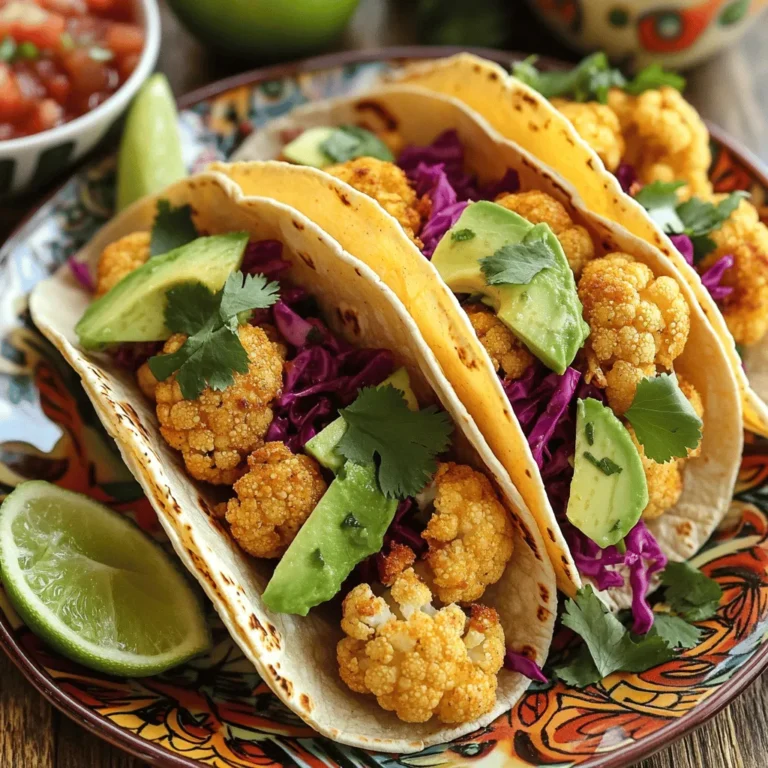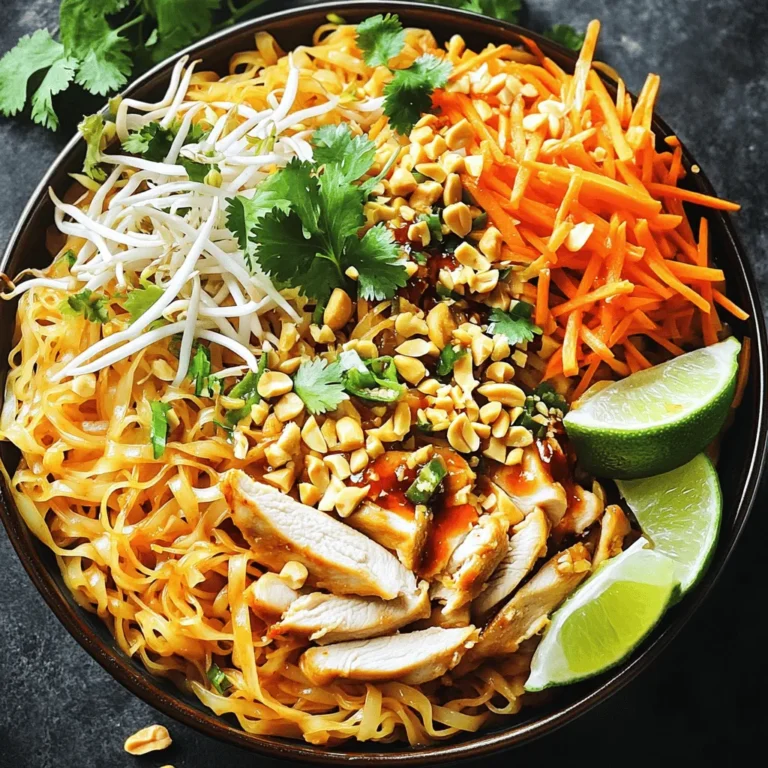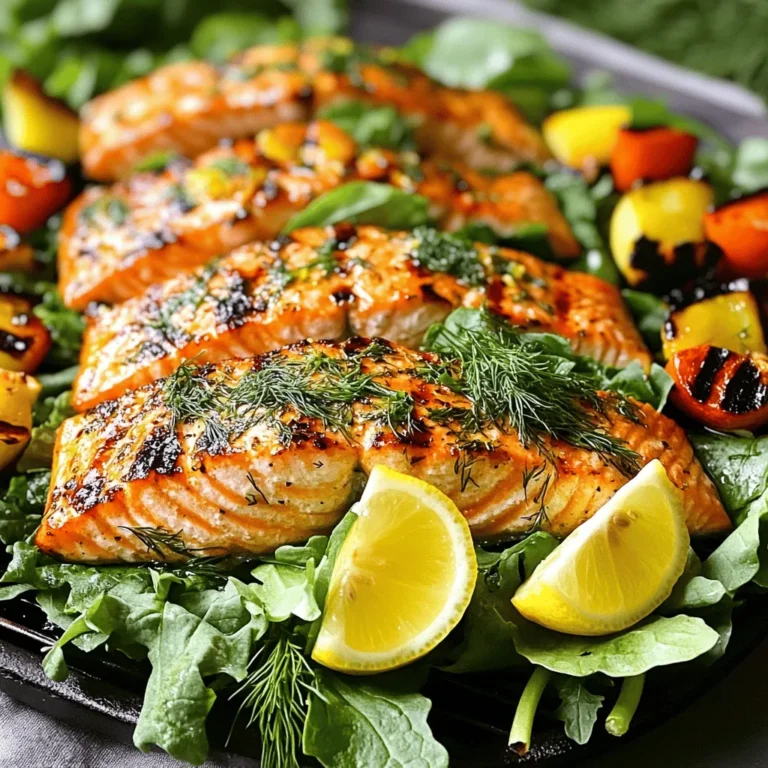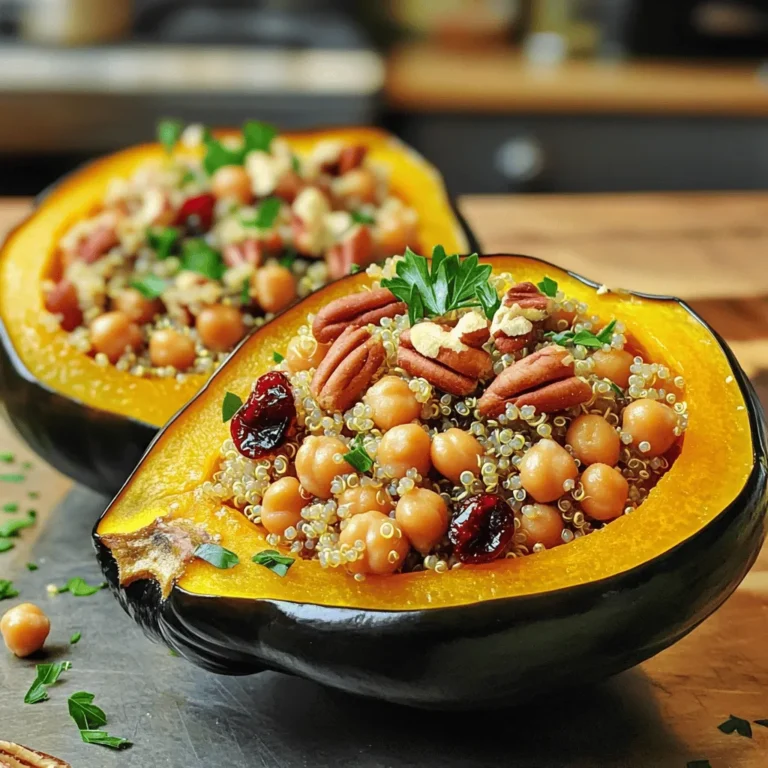Chicken Pesto Pasta Flavorful and Simple Dish
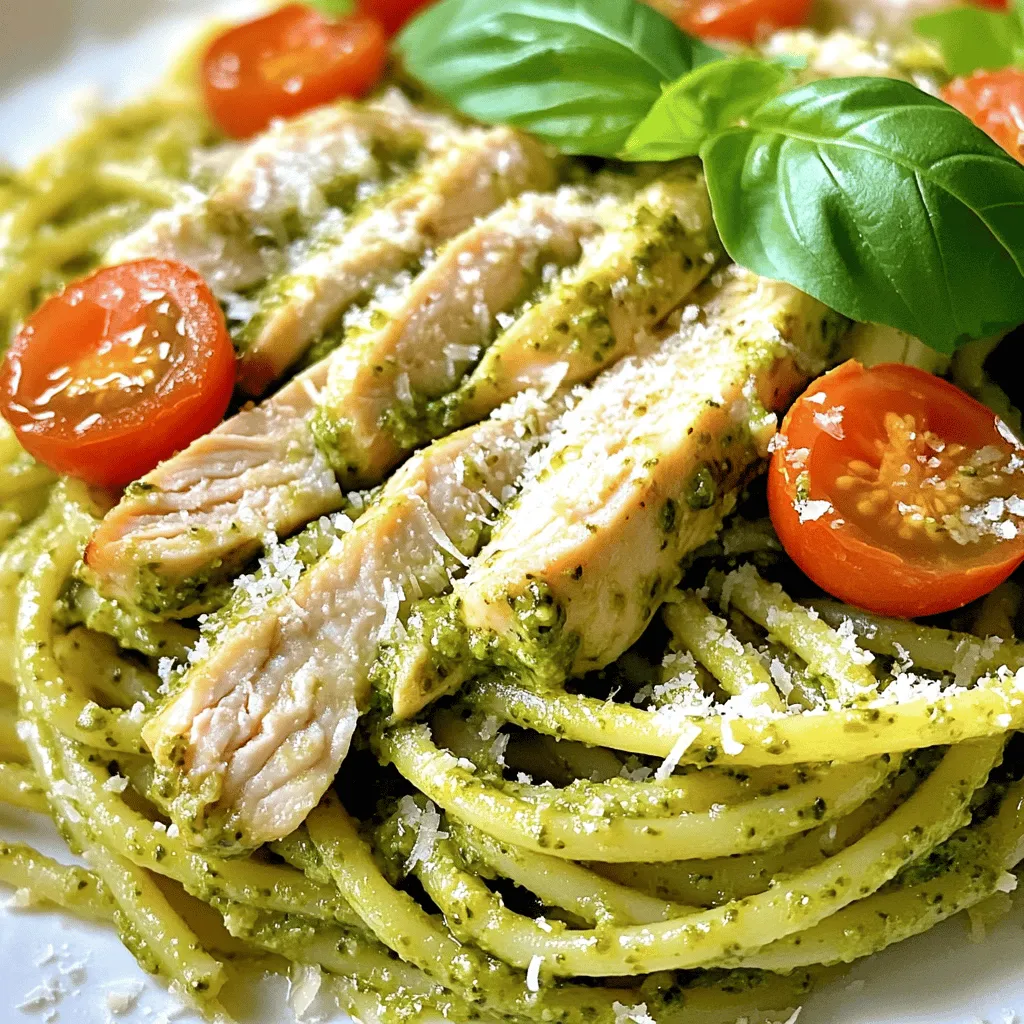
Looking for a quick meal that bursts with flavor? Chicken Pesto Pasta is your answer! This dish combines tender chicken, fresh pesto, and your choice of pasta for a mouthwatering, easy dinner. I’ll walk you through each step, from selecting ingredients to preparing the sauce, ensuring you impress everyone at your table. Let’s get cooking and elevate your weeknight dinners!
Ingredients
List of Essential Ingredients
– 8 oz spaghetti or fettuccine pasta
– 2 chicken breasts, boneless and skinless
– Salt and pepper, to taste
– 2 tablespoons olive oil
– 1 cup homemade or store-bought basil pesto
– 1/2 cup heavy cream
– 1/4 cup cherry tomatoes, halved
– 1/4 cup grated Parmesan cheese
– Fresh basil leaves, for garnish
To create a tasty Chicken Pesto Pasta, you need simple ingredients. Start with 8 ounces of spaghetti or fettuccine. Both types work well and hold the sauce nicely. You will also need two boneless chicken breasts. Season the chicken with salt and pepper for flavor.
Next, grab some olive oil. This helps to cook the chicken and adds richness. For the sauce, you need one cup of basil pesto. You can use homemade pesto or store-bought, depending on your time and taste. Add half a cup of heavy cream to make the sauce creamy and rich.
Don’t forget the cherry tomatoes; they add a juicy bite. Lastly, sprinkle on some grated Parmesan cheese for taste and garnish with fresh basil leaves. These ingredients combine to create a delicious meal that is full of flavor and easy to make.
Optional Garnishes
– Grated mozzarella or goat cheese for topping
– Fresh herbs like parsley or extra basil
– Sautéed spinach or roasted bell peppers
For extra flavor, consider garnishing your dish. You can add grated mozzarella or goat cheese on top. This adds a nice creaminess. Fresh herbs like parsley or extra basil also brighten the dish. If you want more veggies, sautéed spinach or roasted bell peppers work well. These optional garnishes enhance the dish and let you customize it to your taste.
Step-by-Step Instructions
Cooking the Pasta
Start by filling a large pot with water. Add a generous amount of salt to it. Bring the water to a rolling boil. This helps flavor the pasta as it cooks. Add your spaghetti or fettuccine to the pot. Cook according to the package instructions, usually around 8-10 minutes. You want it to be al dente, which means it should still have a slight bite. After cooking, drain the pasta but save about 1/2 cup of the starchy pasta water. This water is important for the sauce later.
Preparing the Chicken
Next, take two boneless, skinless chicken breasts. Season both sides with salt and pepper. This simple step boosts the flavor. Heat 2 tablespoons of olive oil in a large skillet over medium heat. Add the chicken breasts carefully. Cook for 6-7 minutes on each side. You want them golden brown and fully cooked. Use a meat thermometer to check the internal temperature; it should reach 165°F (75°C). After cooking, let the chicken rest for a few minutes. Slice it into strips for easy mixing later.
Making the Sauce
In the same skillet, lower the heat after removing the chicken. Add 1 cup of basil pesto, stirring it gently. I recommend using homemade or good-quality store-bought pesto for the best flavor. Next, pour in 1/2 cup of heavy cream. Mix it well until it combines completely. Cook for 2-3 minutes, just until warmed through. The key is to achieve a creamy consistency without boiling the sauce.
Finishing the Dish
Now it’s time to bring everything together. Add the cooked pasta into the skillet with the sauce. Toss it well to coat every strand in that creamy pesto. If the sauce feels too thick, slowly add the reserved pasta water. This will help reach your desired creaminess. Then, fold in the sliced chicken and 1/4 cup of halved cherry tomatoes. Warm everything together for another 2 minutes. For the final touch, sprinkle 1/4 cup of grated Parmesan cheese on top. Serve hot, garnished with fresh basil leaves for a lively finish.
Tips & Tricks
Perfecting the Pasta
To make pasta just right, cook it until al dente. This means it should be firm but not hard. Follow these steps:
– Boil water and add salt before cooking the pasta. The salt adds flavor.
– Check the package for cooking times. Taste the pasta a minute early.
To avoid mushy pasta, do not overcook it. Here are some tips:
– Stir the pasta while it cooks to prevent it from sticking.
– Drain it right away and do not let it sit in hot water.
Chicken Cooking Tips
For juicy chicken, use these methods:
– Cook chicken breasts on medium heat. This helps cook them evenly.
– Use a meat thermometer to check if they reach 165°F (75°C). This ensures safety.
Resting chicken is also key. Let it sit for a few minutes after cooking. This keeps the juices inside. If you slice it too soon, the juices run out.
Sauce Adjustments
You can change the sauce thickness to suit your taste. To make it thicker, try these methods:
– Add more pesto or cream. This will make the sauce richer.
– Cook it longer on low heat to reduce it.
If you want a thinner sauce, use reserved pasta water. Just add a little at a time until it’s how you like it.
For extra flavor, consider these enhancements:
– Add spices like garlic powder or red pepper flakes.
– Fresh herbs can bring brightness. Basil or parsley work well.
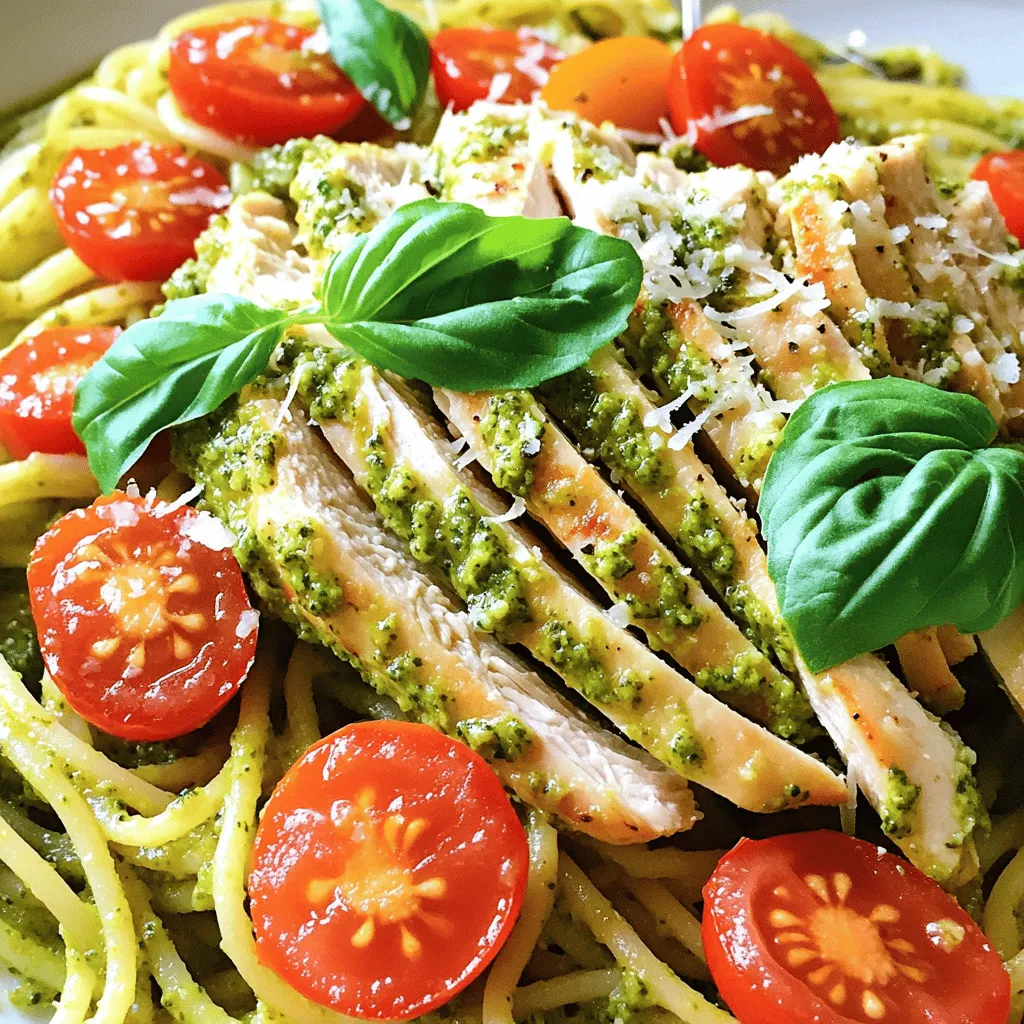
Variations
Pasta Alternatives
You can change up your pasta for this dish. Here are some options:
– Gluten-free options: Use quinoa or brown rice pasta for a gluten-free meal.
– Other types of pasta: Try penne, rotini, or even whole wheat pasta. Each type gives a unique twist.
Protein Substitutes
If you want to swap the chicken, you have great choices:
– Suggestions for vegetarian proteins: Use grilled tofu or chickpeas for a tasty vegetarian option. They soak up the pesto flavor well.
– Variations with seafood or other meats: Shrimp or salmon work great in this dish. Cook them until just done for the best taste.
Dietary Modifications
You can adjust this recipe to fit your diet:
– Low-carb or keto-friendly options: Replace pasta with spiralized zucchini or cauliflower rice. This keeps the dish tasty and low in carbs.
– Dairy-free alternatives: Use coconut cream instead of heavy cream. It adds a nice flavor without the dairy.
Storage Info
Refrigeration Guidelines
To store your chicken pesto pasta, let it cool first. Then, place it in an airtight container. Store it in the fridge for up to three days. This keeps it fresh and tasty for your next meal.
Reheating Instructions
When it’s time to enjoy your leftovers, reheat them gently. Use a skillet over low heat. This method helps keep the pasta creamy. You can also add a splash of water or cream to help with the texture. Stir often to ensure even heating and to prevent sticking. Enjoy your meal just like the first time!
FAQs
How do I make Chicken Pesto Pasta from scratch?
To make Chicken Pesto Pasta from scratch, follow the Full Recipe. Start by cooking the pasta in salted boiling water. While the pasta cooks, season and cook the chicken in olive oil. Once cooked, slice the chicken. In the same pan, mix the pesto with heavy cream to make the sauce. Combine everything, adding the pasta and chicken to the sauce. Toss well and serve with fresh basil on top.
Can I use store-bought pesto?
Yes, you can use store-bought pesto. It saves time and still adds great flavor. Look for a brand made with fresh basil and quality ingredients. However, homemade pesto often tastes brighter and fresher. Store-bought options can sometimes be a bit salty, so taste and adjust your dish as needed.
What can I serve with Chicken Pesto Pasta?
You can serve Chicken Pesto Pasta with many delicious sides. Here are some ideas:
– Garlic bread for a crunchy, buttery touch.
– A fresh green salad with lemon vinaigrette.
– Roasted vegetables to add color and nutrients.
– Grilled asparagus for a light, healthy option.
– Parmesan cheese on the side for extra flavor.
This blog post covered how to make a tasty Chicken Pesto Pasta. We discussed essential ingredients and provided detailed steps for cooking. I shared tips for perfecting your dish, including variations for dietary needs, and how to store leftovers.
To make this meal your own, try different pasta or proteins. Enjoy experimenting with flavors and presentation. The key is to have fun while cooking!
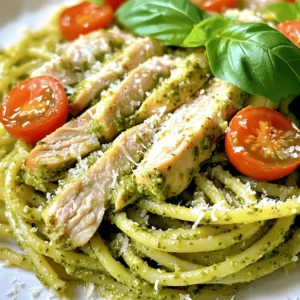

![To make a great Classic Chicken Alfredo, you need a few key items. Here’s what you will need: - 2 boneless, skinless chicken breasts, sliced into strips - 8 oz fettuccine pasta - 2 tablespoons olive oil - 3 cloves garlic, minced - 1 cup heavy cream - 1 cup grated Parmesan cheese - 1 teaspoon Italian seasoning - Salt and black pepper to taste - Fresh parsley, chopped (for garnish) - Freshly cracked black pepper (for finishing) Each ingredient plays a vital role in creating this creamy dish. The chicken gives protein, while the pasta adds substance. Olive oil adds flavor and helps cook the chicken. Garlic gives a nice aroma and taste. Heavy cream makes the sauce rich and smooth. Parmesan cheese adds saltiness and depth. Italian seasoning brings in herbs for a fresh touch. Salt and black pepper enhance all the flavors. Lastly, parsley adds color and brightness to your plate. These ingredients come together to create a comforting meal. You can find the full recipe in the recipe section. Enjoy cooking! Let’s dive into the steps to make Classic Chicken Alfredo. This creamy dish is perfect for dinner. First, fill a large pot with water. Add enough salt to make it taste like the sea. Bring the water to a boil. Add 8 oz of fettuccine pasta. Cook it according to the package instructions until it is al dente. This usually takes about 8-10 minutes. Reserve ½ cup of the pasta water, then drain the pasta and set it aside. Next, heat 2 tablespoons of olive oil in a large skillet over medium heat. When the oil is hot, add the sliced chicken breasts. Season the chicken with salt and black pepper. Cook it for 5-7 minutes, or until it is browned and cooked through. Make sure to stir often. Once done, remove the chicken from the skillet and set it aside. In the same skillet, add 3 cloves of minced garlic. Sauté the garlic for about 1 minute. You want it to be fragrant but not burnt. This step adds a lovely flavor to your sauce. Now, pour in 1 cup of heavy cream and bring it to a gentle simmer. Stir in 1 cup of grated Parmesan cheese and 1 teaspoon of Italian seasoning. Let the sauce thicken for about 2-3 minutes. If it gets too thick, add some reserved pasta water until you reach your desired consistency. Add the cooked fettuccine and browned chicken back into the skillet. Toss everything together gently. Make sure all the pasta and chicken are coated in the creamy sauce. Taste and adjust the seasoning with more salt and pepper if needed. Finally, plate your creamy Chicken Alfredo. Garnish it with freshly chopped parsley and a sprinkle of cracked black pepper. This adds a nice touch and a little kick to the dish. Enjoy your meal! For the full recipe, check out Creamy Dreamy Chicken Alfredo. Avoiding a Lumpy Sauce To stop lumps, stir well as you cook. Use low heat to keep the sauce smooth. Start with warm cream, and add cheese slowly while stirring. This helps the cheese melt better and mix in nicely. Achieving the Right Consistency You want your sauce creamy but not too thick. If it gets thick, add some reserved pasta water. This water helps blend and thin the sauce to the right texture. The sauce should coat the pasta well but still flow easily. Seasoning to Taste Taste your sauce as you cook. Add salt and black pepper as needed. Don’t forget the Italian seasoning for extra flavor. A little fresh parsley on top adds brightness, too. Optimal Chicken Cooking Methods For the best chicken, cook it in a hot skillet with olive oil. This gives you a nice golden crust. Cook until the chicken is no longer pink inside. It takes about 5-7 minutes. Best Pasta Cooking Practices Use plenty of salted water to boil your pasta. This helps the pasta flavor. Cook it just until it’s al dente, so it has a slight bite. Always reserve some pasta water before draining. This water is great for adjusting the sauce later. Explore the [Full Recipe] for step-by-step details! {{image_2}} You can make Chicken Alfredo even better by changing a few things. - Adding Vegetables: Broccoli or spinach adds great color and nutrition. Broccoli cooks well in the pasta water. Just add it for the last 2-3 minutes. Spinach wilts quickly and can go in right before serving. Both make the dish healthier. - Using Different Types of Pasta: Fettuccine is classic, but you can try other pasta. Penne or rigatoni work well too. They hold the sauce just right, giving you a tasty bite every time. - Cheese Alternatives for Flavor Variations: Parmesan is great, but don’t stop there. You can mix in Romano or Asiago for a different taste. A blend of cheeses can add depth and a unique flavor to your sauce. You can easily adapt Chicken Alfredo for diets. - Gluten-Free Options: If you need gluten-free, use gluten-free pasta. Many brands offer good options that cook well and taste great. Always check the package to ensure it's safe for your needs. - Dairy-Free Modifications: For a dairy-free version, swap heavy cream for coconut milk or a nut milk. Nutritional yeast can replace Parmesan for a cheesy flavor without dairy. These swaps keep the dish creamy and delicious. Use these variations and adjustments to make this dish your own. You can enjoy a tasty meal that fits your needs and preferences! Don't forget to check the Full Recipe for detailed steps. Storing your Chicken Alfredo can keep it fresh for later. Here are simple steps: - Refrigerating Alfredo Pasta: Place leftover Chicken Alfredo in an airtight container. This keeps the dish moist. Store it in the fridge. It lasts about 3-4 days. - Freezing Suggestions: If you want to save it longer, use a freezer-safe container. Leave some space at the top for expansion. Chicken Alfredo can freeze well for about 2-3 months. When ready to eat, thaw it in the fridge overnight. To enjoy your Chicken Alfredo again, follow these steps: - Best Methods for Reheating: Use a skillet over low heat. Add a splash of milk or cream to help the sauce. Stir until warmed through. You can also use the microwave. Heat in short bursts, stirring often. - Avoiding a Dry Sauce: Adding a little liquid is key. It helps keep the sauce creamy. If it seems too thick, add more milk or reserved pasta water. This way, your Chicken Alfredo stays delicious. Can I make Chicken Alfredo ahead of time? Yes, you can make Chicken Alfredo ahead. Cook it and let it cool. Store it in the fridge for up to three days. Just reheat gently when you are ready to serve. What kind of chicken is best for Alfredo? Boneless, skinless chicken breasts work best. They cook quickly and stay tender. You can also use chicken thighs for more flavor. How long does Chicken Alfredo last in the fridge? Chicken Alfredo lasts about three days in the fridge. Make sure to store it in an airtight container. Can I use milk instead of heavy cream? You can use milk, but the sauce will be thinner. For creaminess, consider mixing milk with some butter. What's the history behind Chicken Alfredo? Alfredo sauce comes from Italy. It was created by Alfredo di Lelio in the early 1900s. He made it for his wife, who had trouble eating. It became popular in America later. Is it possible to make Alfredo sauce without butter? Yes, you can make Alfredo sauce without butter. You can use olive oil instead. It will still taste great! How can I make Chicken Alfredo spicier? To spice up Chicken Alfredo, add red pepper flakes. You can also use spicy Italian sausage in place of chicken. Both add a nice kick! Classic Chicken Alfredo is easy to make with simple ingredients. You need chicken, fettuccine pasta, garlic, and heavy cream. I shared step-by-step instructions to guide you through cooking this dish. I also included tips to improve your sauce and cooking techniques to enhance flavor. If you want to mix things up, consider adding veggies or adjusting for dietary needs. Enjoy your Alfredo dish and share your thoughts. Cooking can be fun and rewarding!](http://dailydishly.com/wp-content/uploads/2025/06/21a9bb47-f2dd-4716-bed4-2c8161470a16-768x768.webp)
. Pasta Primavera is a colorful dish packed with fresh veggies and flavor. You learned how to pick the right pasta, sauté vegetables, and balance seasonings. Plus, we covered ways to customize for your taste and diet needs. Remember, storing leftovers properly keeps your meals fresh. Try new veggie swaps and protein options for fun twists. Enjoy creating your own Pasta Primavera masterpiece!](http://dailydishly.com/wp-content/uploads/2025/05/1202f33f-9285-4746-af91-946a78d77e80-768x768.webp)
